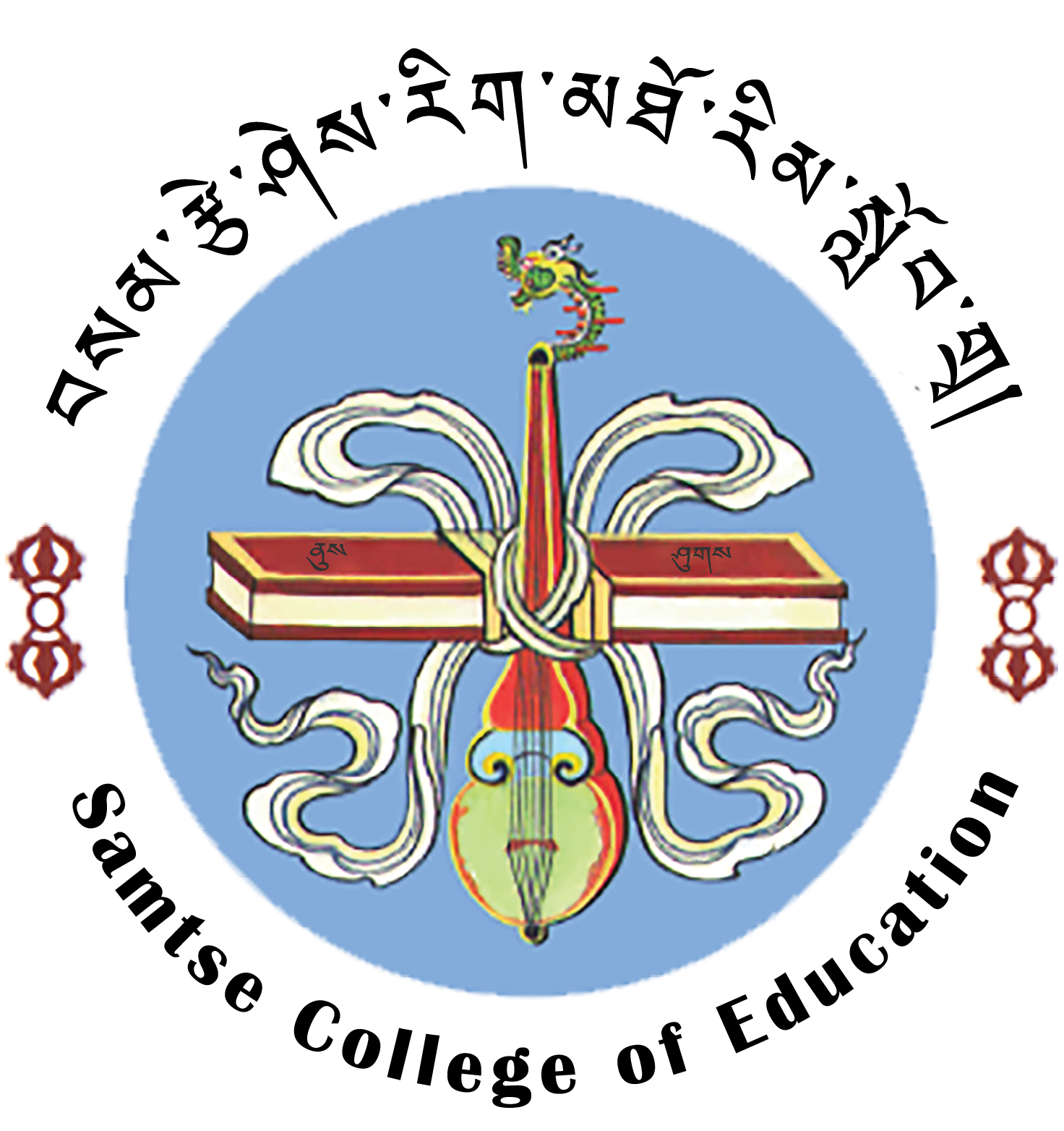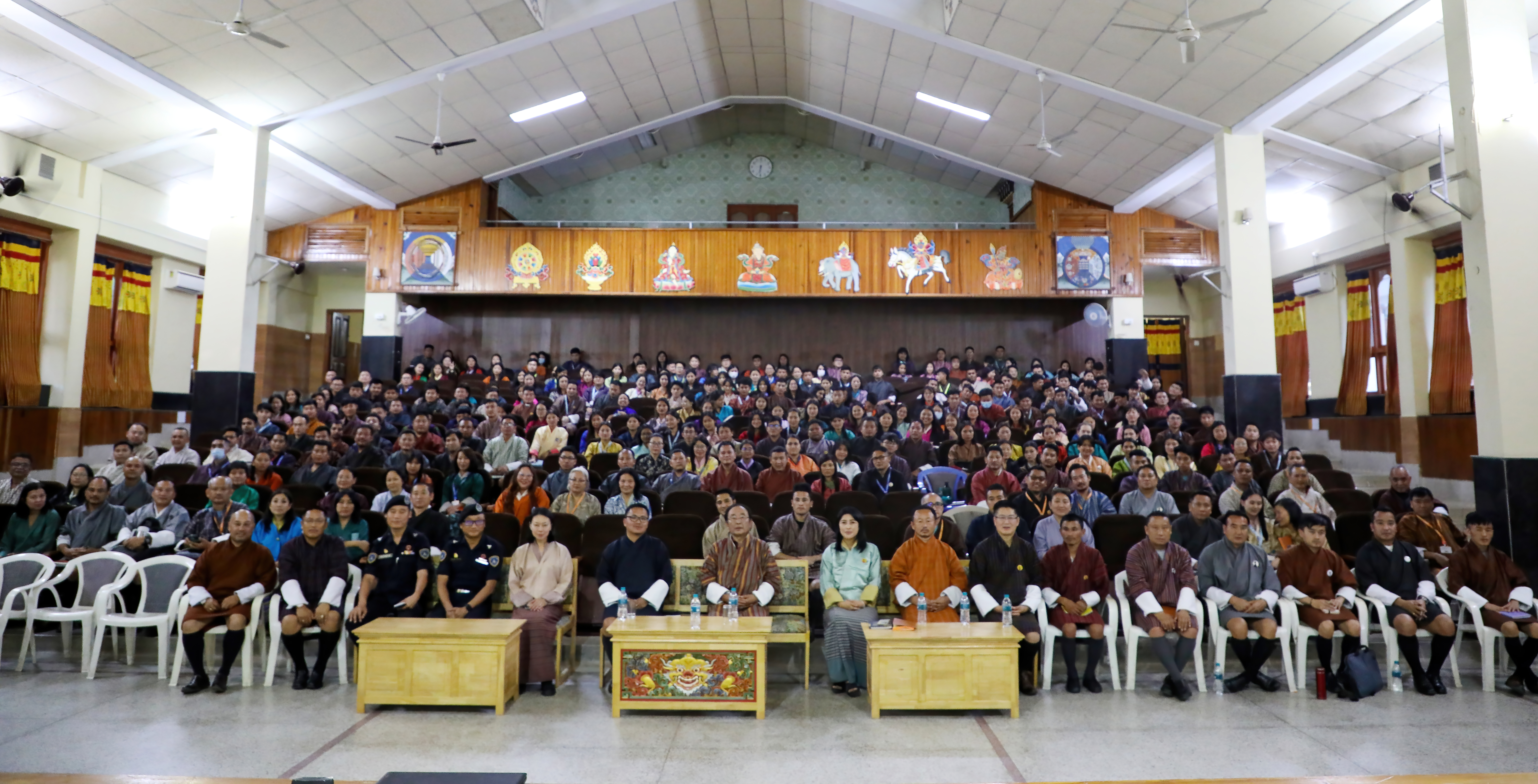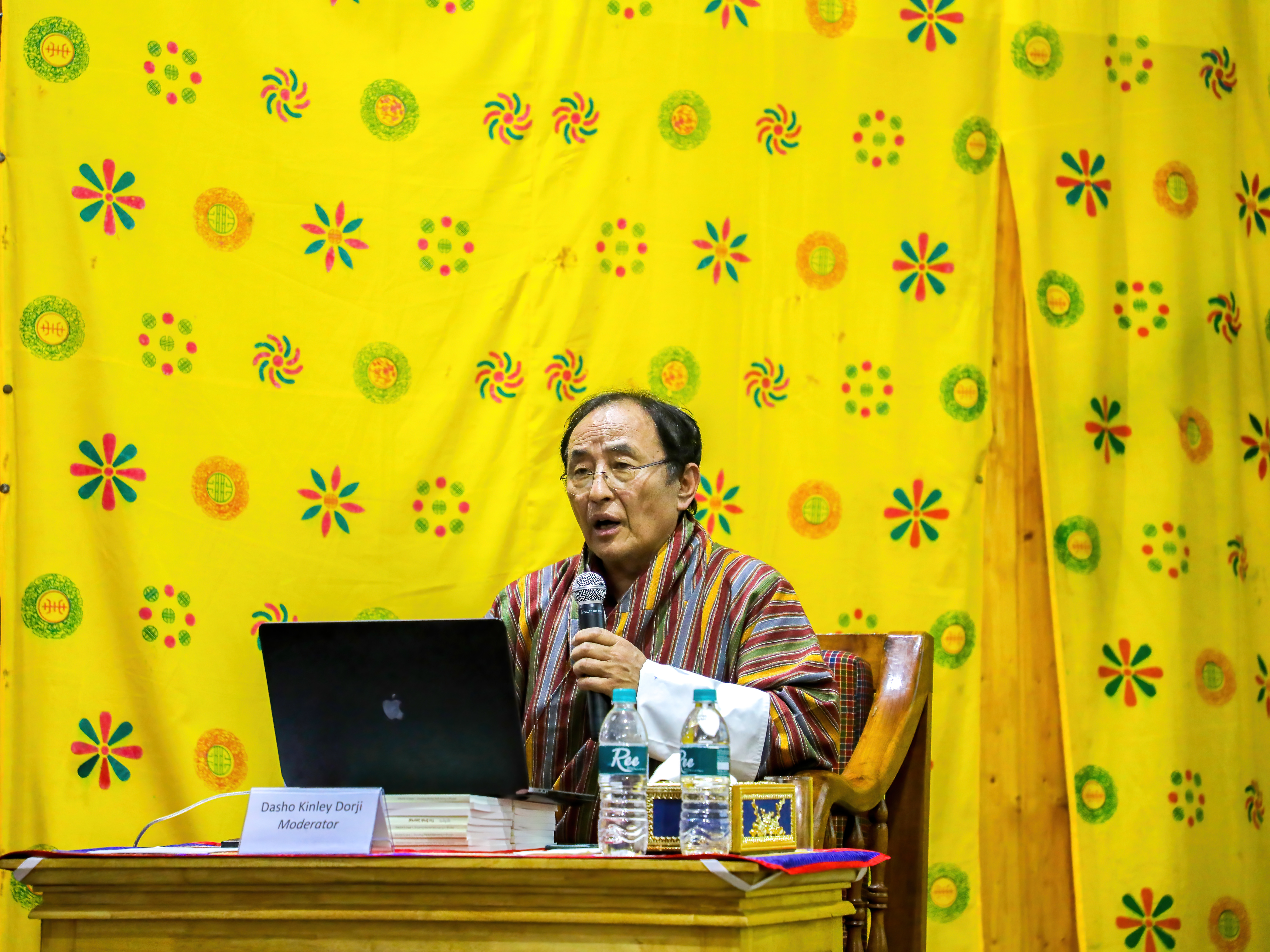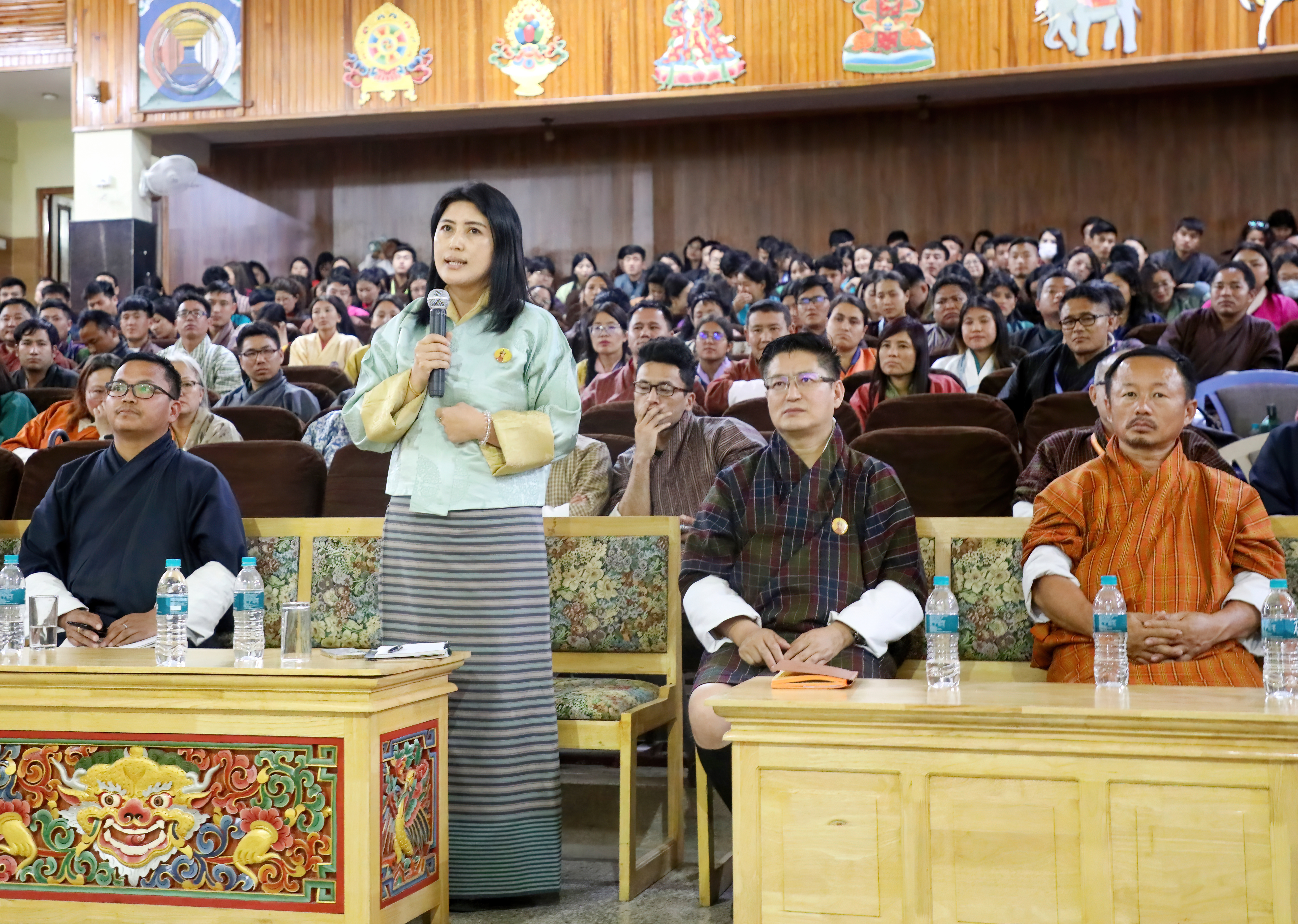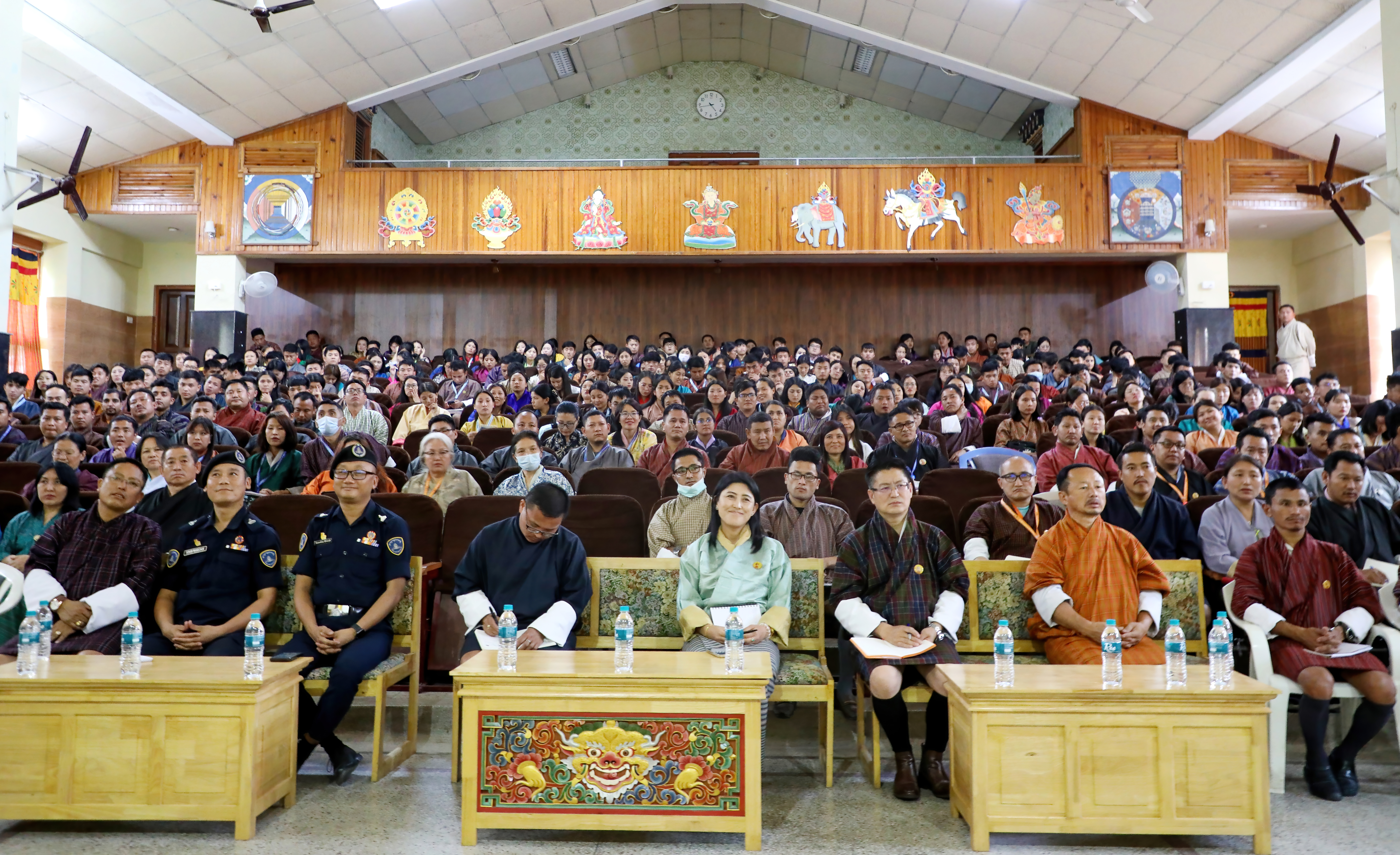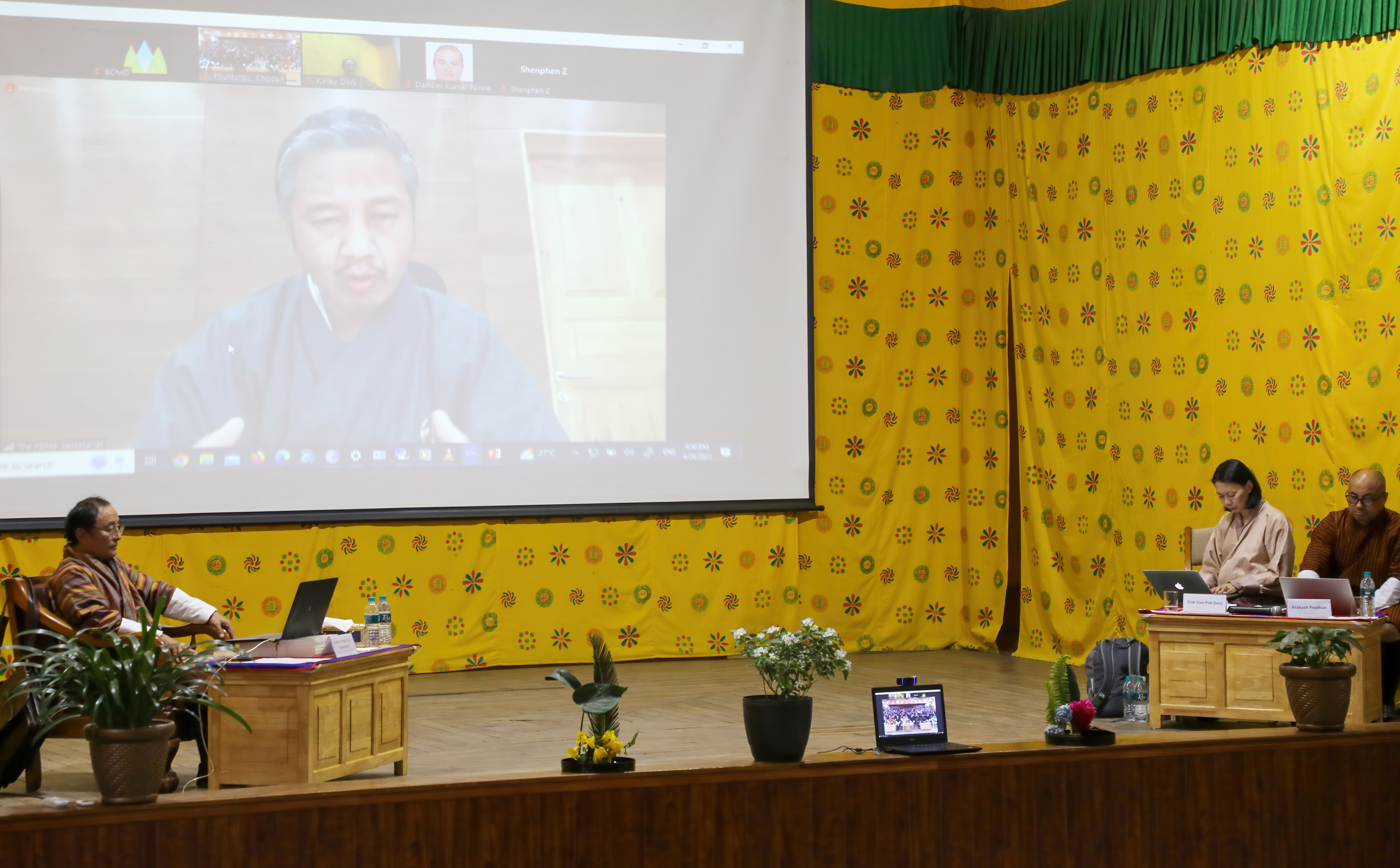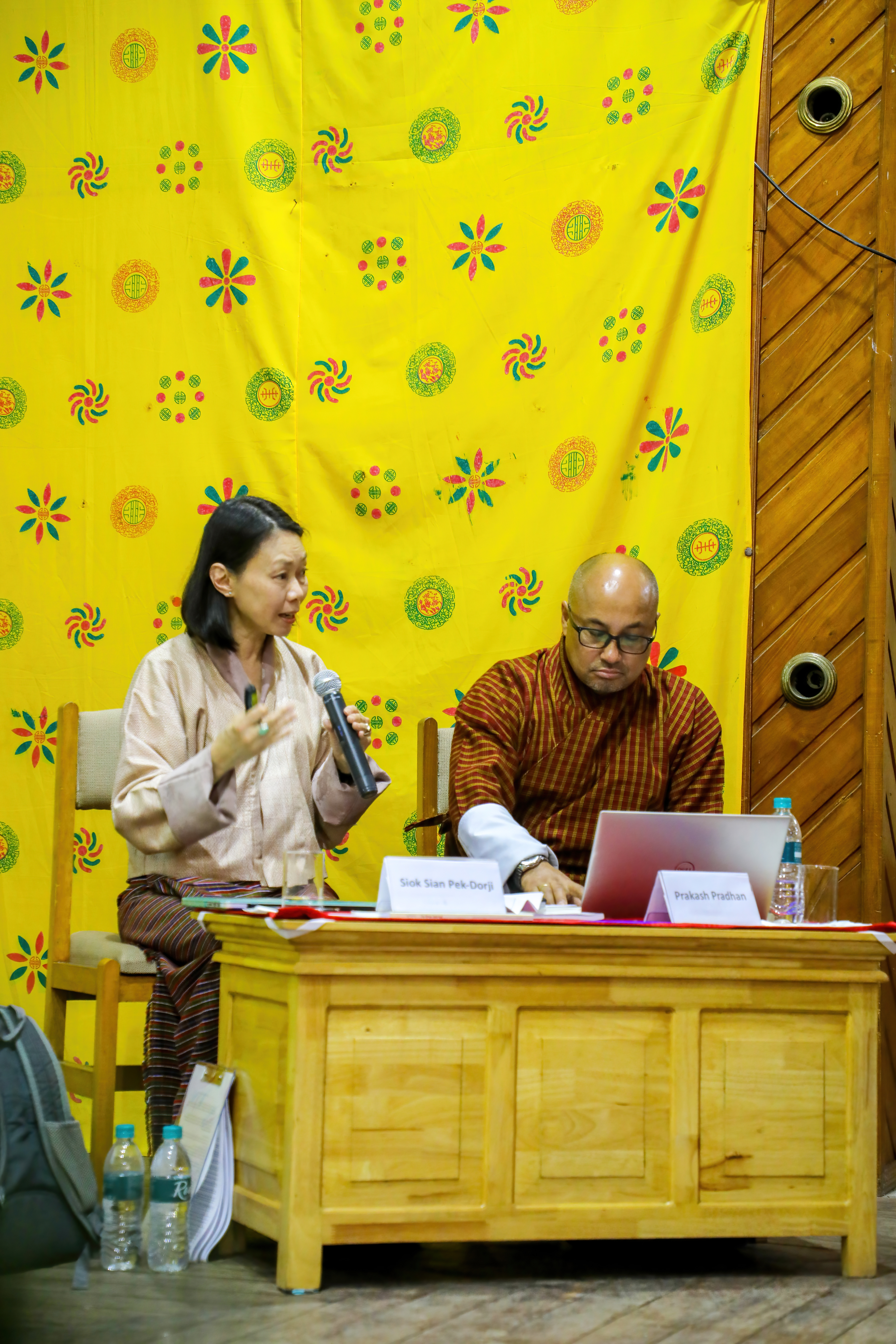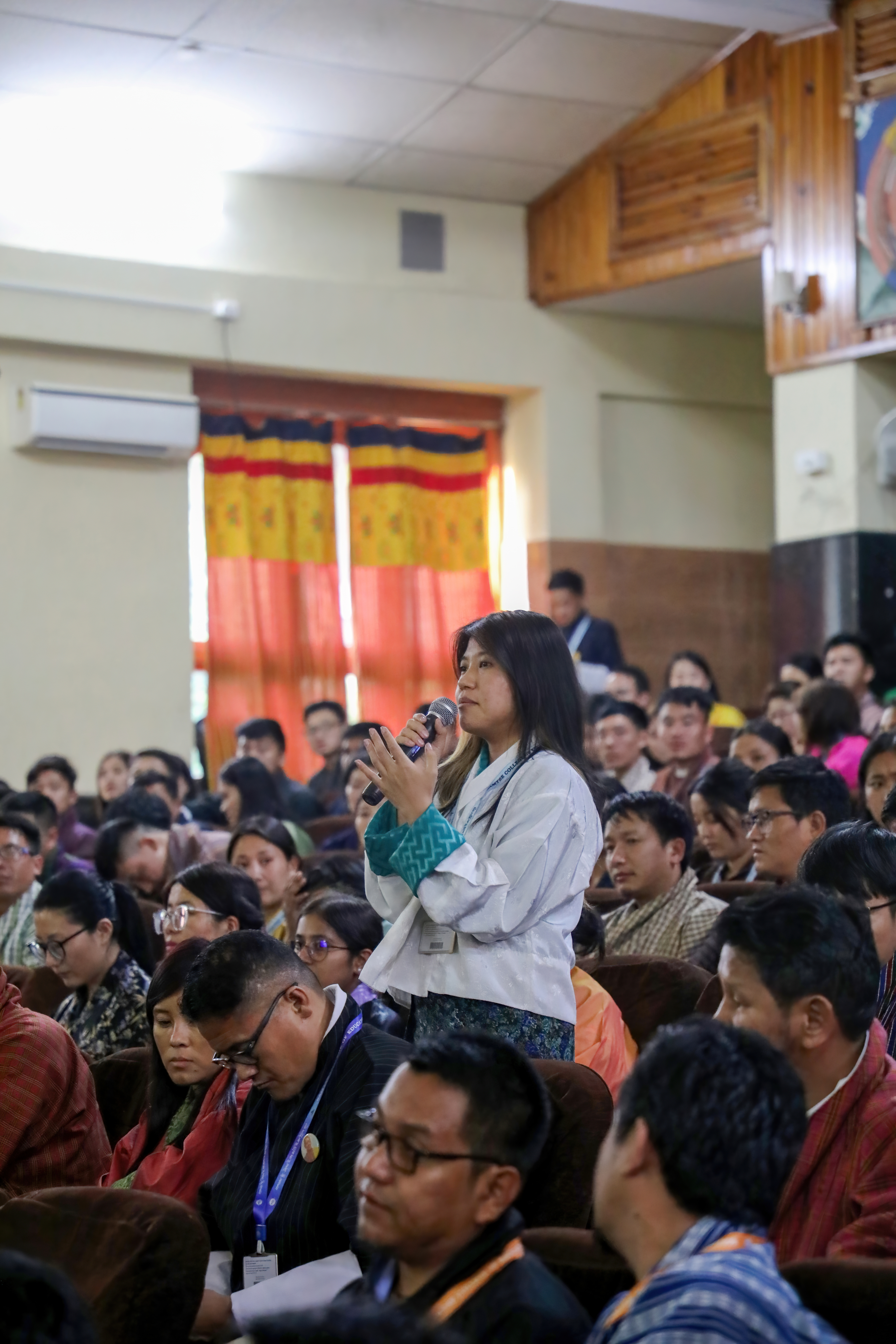Druk Journal Colloquium held in Samtse College of Education
The Druk Journal Conversation on “Ensuring Mental Well-being in Bhutan” was organised this time at Samtse College of Education on April 24, 2023. The Bhutan Centre for Media and Democracy (BCMD) that publishes The Druk Journal usually organise this programme as a knowledge sharing event for the wider dissemination of the ideas presented through the articles published in the Journal. In addition to the teaching faculty, staff, and students of the College, Dasho Drangpon, Dzongrab, Police Officers, Samtse Gewog Thrizin, health professionals, principals and counsellors from the nearby schools were there in attendance for this event.
The discussion was moderated by the Chief Editor of the Journal, Dasho Kinley Dorji. The discussion panel included the contributing authors of the Journal where two of them – Aum Siok Sian Pek-Dorji, Founder and Advisor of BCMD and Prakash Pradhan, a principal counsellor from the Bhutan Qualification and Professionals Certification Authority (BQPCA) of the Ministry of Education and Skills Development (MoESD) attended in person while the rest of the contributing authors and speakers attended virtually via zoom.
Dasho Kinley Dorji alerted the audience of the rising mental health issues in the country and shared that Samtse Dzongkhag has the highest incidences of suicide cases compared to other parts of Bhutan. He cautioned of the need to attend to this problem seriously with concerted efforts and interventions from all stakeholders.
Mr. Kelzang, who spoke via zoom from Thimphu informed the gathering that “The PEMA”, made up of two major wings i.e. The PEMA Secretariat and The Pema Center has been established to serve as a nodal agency for mental health in Bhutan under the patronage of Her Majesty The Gyaltsuen. It was heartening to learn that The Pema Secretariat will henceforth spearhead mental health planning, standardization, consolidation, and professionalization of mental health services in the country.
Also speaking via Zoom, Doctor Damber Kr. Nirola, a psychiatrist with years of experience in psychiatric practice stressed the importance of understanding a person’s emotional, psychological, and social well-being and the effects it has on people’s thinking, feeling, behavior, handling stress and making choices. Doctor Nirola shared his initial experience of working with clients suffering from mental health issues and stated that the challenges related to stigma and people’s acceptance of mental health problems are still the same today even with the educated population. He emphasised the critical need of all agencies to work together as a team and concluded that fighting stigma related to mental health is everyone’s responsibility and seeking timely professional help can immensely help in curbing mental health issues in society.
Lama Zhenphen, a buddhist monk, who is a recipient of the National Order of Merit, Gold for his unstinted contributions as a social worker helping the Bhutanese youths make positive changes in their lives said that youth issues related to drug and substance abuse, and mental health wellbeing need to be looked at from multiple perspectives. Lama looked at these issues from a systems perspective where systemic interventions will need to be crafted intelligently to curb these social issues. He used the analogy of what a fruit tree requires beyond a seed to grow healthily to bear a healthy fruit to explain what today’s youths need for healthy wholesome development. Lama asserted that our youths need help, not punishment to correct and make positive changes.
Aum Pek, who attended the programme in person cited empirical research findings from the schools in Thimphu to show an alarming level of mental health issues in schools. She expressed that a significant number of students in Key Stage I are stressed and deal with mental health issues which, in fact, requires deeper attention from the different stakeholders. She stressed that mental health issues can have a ripple effect on the people around the person, such as family members, friends, and colleagues, which could have a significant impact on society. She concluded highlighting the need to coordinate and collaborate amongst key players such as parents, family members, schools and the community to address the increasing phenomenon of mental health problems in the country.
Prakash Pradhan’s presentation, which basically centered around the meaning and myths about mental health helped to dispel any misconceptions related to mental health thus bringing much clarity to the issue at hand.
There were a number of questions from the audience which not only made the conversation engaging and interactive but also contributed in deepening the audience’s understanding of the rising mental health scenario in the country and the urgency of the need to intervene such social problems before it grows out of proportion. This learning event certainly would have alerted the audience of the need to think of how they can play their own individual part to contribute to the larger scheme of things to address this topical issue for a happier and secure Bhutan.
Previous post
In conversation with Dasho Kinley Dorji: Insights on crafting engaging Creative Non-fiction
You may also like

Spring Semester 2026 Commences with Renewed Commitment

SCE Faculty Launch Three-Day Differentiated Instruction Training

